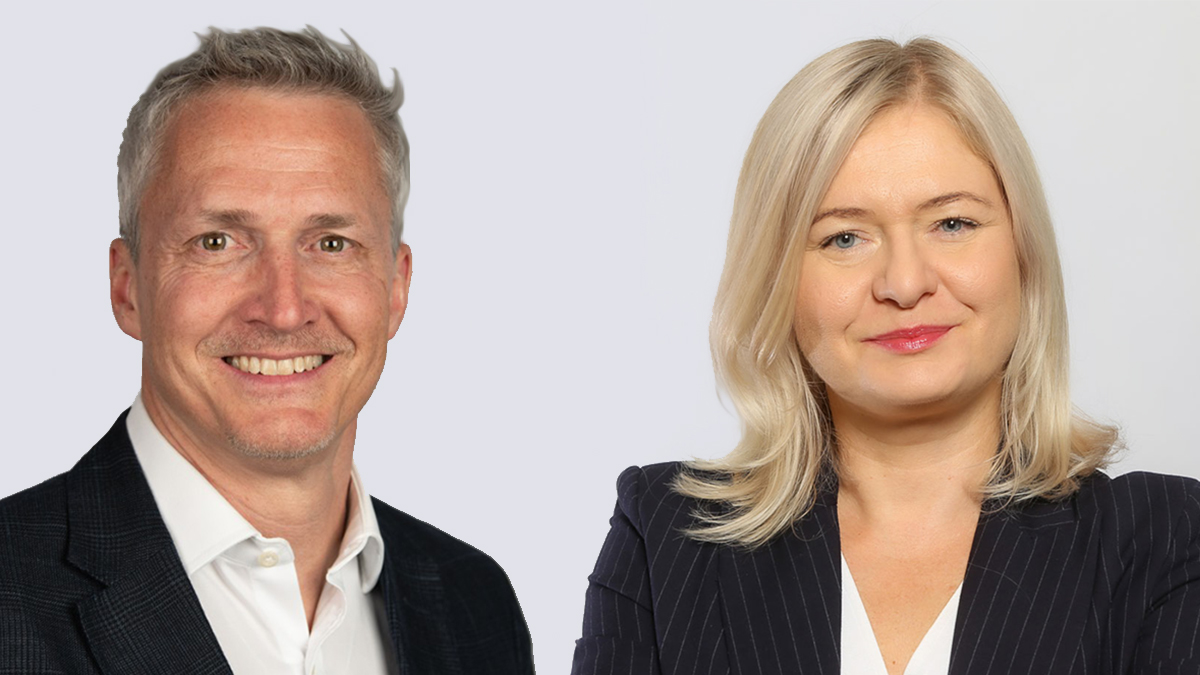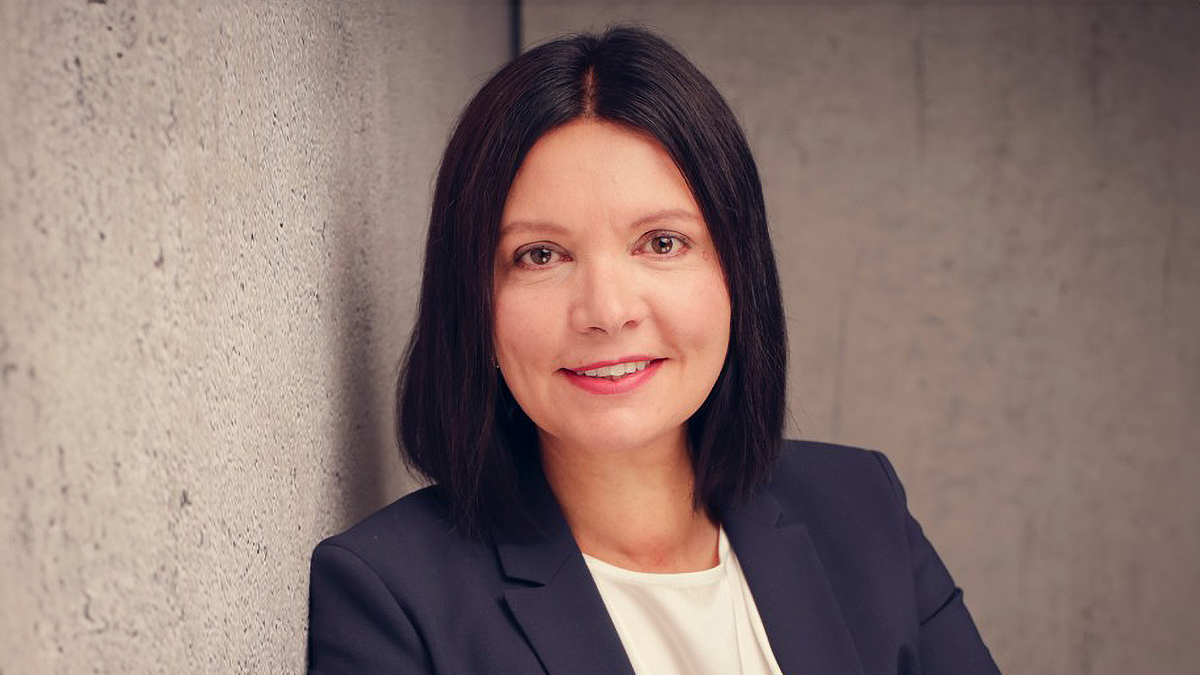Sompo eyes marine growth in Europe
‘The world is changing, climate-wise, technology-wise, regulation-wise. The answer is we must approach new risks together, as a community,’ Sompo’s René Huber says
Japanese-owned carrier’s head of marine and specialty insurance for continental Europe describes how long-term commitment is key to client confidence
Sompo is focused on growing its marine insurance book as it builds out its European operations, according to the global re/insurer’s head of marine and specialty insurance for continental Europe.
In an interview with Insurance Day, one month on from Sompo’s launch of a national marine insurance proposition for the UK, René Huber describes how the continental European marine business has a leading role in the next stage of the international carrier’s evolution.
Huber has more than 25 years’ experience in multinational business, with a focus on marine and specialty products. Having joined Sompo in June 2023 from Axa XL, where he was senior manager of the French re/insurer’s global programmes business, Huber is now responsible for developing Sompo’s marine/specialty underwriting and distribution strategy, sustainably growing the marine book and building a team across the continent.
When asked what drew him to joining Sompo, he refers to the company’s Japanese roots, highlighting its strong reputation, financial stability, growth strategy and parent company Sompo Holdings’ 130-plus-year history of innovation.
Values and culture
Having worked for Swiss, UK, US and French-headquartered companies, Huber appreciates the values ingrained in Japanese-owned Sompo. “With Asian cultures, business is viewed in the long term. That's important because it gives customers confidence when we set goals and shows we work as a community,” he says.
“I was familiar with Sompo and I was impressed by what the company was doing internationally,” he says. “Sompo already had mature operations in Japan, of course, but it was also growing steadily in North America, the UK and Brazil, together with Europe and Asia-Pacific.”
Huber’s team is mainly concentrated on providing multinational cargo programme solutions for its commercial property/casualty (P&C) and financial lines clients across continental Europe.
In marine hull insurance, Sompo is following a more country-specific strategy, he says, adding this is aligned with the carrier’s overall marine insurance strategy, especially when it comes to aggregation in the international hull business.
“Theoretically everything is insurable, but it depends on the price. However, in reality, it’s about the accumulation and assessment of a risk. It is a challenge, however, because the world is changing, climate-wise, technology-wise, regulation-wise. The answer is we must approach new risks together, as a community”
René Huber
Sompo
Since starting its marine operations in continental Europe last year, Sompo has experienced “significant growth” and is receiving “very positive feedback” from its clients and brokers, which is “motivating us to move ahead on our journey”, Huber says.
Huber continues: “Our goal is to be one of the major international leaders in the marine insurance business across continental Europe and the preferred market for our brokers and our clients.
“With the continued expansion of our continental European operations we have steadily built up our expertise in underwriting, operations, claims and risk control engineering. We offer a great combination of strong financials and ratings coupled with a broad suite of capabilities and without any legacy issues, we are able to quickly and efficiently deliver tailored solutions and integrate new technologies.”
Sompo offers marine cargo and hull insurance on a primary and excess basis, as well as coverage for a range of marine liability and specie risks. With hubs in North America, continental Europe, the UK and Asia-Pacific, Sompo says its integrated multinational platform makes it easier for clients with global operations to access the commercial P&C coverage they need through a single point of contact.
“Sompo believes in empowering its underwriters to be decision-makers and is known throughout the market to be solutions-driven,” Huber says. “I expect my team to have in our DNA the motivation to think outside the box, which also means empowering colleagues at the local level and having open discussions,” he adds.
Emerging risks
Huber says the three top emerging and emergent risks – geopolitical instability, supply chain disruption and climate change – are now obvious to marine re/insurers.
While much of the world’s attention is on the Russia-Ukraine and Middle East conflicts, marine insurers are also “facing the reality” of the potential for geopolitical tensions to impact shipping in the East and South China seas, he says, as well as the possibility of disruption to trading routes around Latin America and Africa. Specific challenges include the old – piracy – and the new – sanctions.
“We’re working closely with our political risk and crisis management teams, exchanging information and assessing what could happen over the next four months, which we then feed back into discussions with brokers and clients,” Huber says.
“It's this type of intelligence that enables us to have detailed conversations with clients, so they understand fully all the risks they potentially face and also some of the options they have,” he adds.
On supply chain disruption, Huber says the Covid-19 pandemic showed “how quickly everything can collapse”. Additionally, port closures – such as the US labour strikes in October that affected 36 ports – and unforeseen events, such as the Baltimore bridge collapse in March, further reinforce the potential fragility of the supply chain.
Huber says: “Cargo relies on the resilience of the supply chain and insurance has a crucial role to play here. Risk managers understand this and recognise the financial value and certainty insurance can bring in the long term.”
Climate change is “definitely” having an impact on marine cargo operations, with the recent Atlantic hurricanes as an example, Huber says. There is an opportunity for marine re/insurers, therefore, to have an impact on environmental, social and governance strategies – for example, with the transition to cleaner fuels. “It’s important for marine insurers to influence what we can in the focus on climate change, although this is something where everybody has to participate,” he adds.
Huber spoke to Insurance Day at the Federation of European Risk Management Associations’ (Ferma) forum in Madrid, where Ferma issued the warning the modern risk manager is dealing with both insurable and, increasingly, uninsurable risks.
“Theoretically everything is insurable, but it depends on the price,” Huber stresses. “However, in reality, it’s about the accumulation and assessment of a risk. It is a challenge, however, because the world is changing, climate-wise, technology-wise, regulation-wise. The answer is we must approach new risks together, as a community.”
Nascent opportunities
Economic recovery from the pandemic is pulling cargo into sharp focus for marine re/insurers, Huber says, pointing to the latest data from the UN Conference on Trade and Development (UNCTAD).
UNCTAD has announced global maritime trade increased 2.4% in 2023, with a forecasted 2% growth for 2024 and 2.4% a year for 2025 to 2029, despite ongoing geopolitical tensions.
“The world economy overall is in good shape and there is confidence of further growth,” Huber says, pointing out world trade in the 2020 pandemic year was as low as -9%.
There are also good signs from specie, he adds, with an increased market for high-value items, such as luxury watches, jewellery and fine art. “And so, overall, the cargo specie side, that’s definitely an opportunity,” he says.
Another opportunity Huber highlights is digital transformation.
“It’s more and more common for clients, brokers and insurers to be using devices with internet of things technology and telematics to have better real-time assessment, to predict what could happen, to avoid claims,” he says.
However, artificial intelligence, while obviously an important development, is no substitute for the assessment capability of a human underwriter, he adds.
Compliance with tax and other legislative requirements, is a challenge for risk managers, he continues, but an opportunity for multinational carriers like Sompo, because they have the expertise to offer solutions that comply with local policies.
Market outlook
Continuing growth in the world economy means the market outlook “remains positive” for cargo, Huber says, and “stable” market conditions are expected next year as well.
“Of course, well-performing risk management accounts in the market might see slight rate reductions, but if you've got distressed accounts then there may be rate increases, terms and conditions tightened or there will be more investment in risk control engineering,” he says.
The hull market is also stable, he continues, although there have been press reports of some softening.
Huber says: “Overall, there’s enough capacity. There’s new capacity like ours, to certain extent, but I think it’s a common understanding in the market we continue to stick to disciplined underwriting.”
Prices, he says, are “adequate”. “It’s a healthy environment for the customers, the brokers and the insurers, which was not the case maybe five years ago,” he says.
Overall industry losses from the Baltimore bridge collapse, Huber says, potentially could be close to those of the Costa Concordia disaster of 2012 – the most expensive marine loss in history for insurers.
“We don’t yet know exactly how much it will cost the insurance industry – it’s too early to tell. It will depend on the overall economic cost and what has to be paid by insurers, but Costa Concordia gives us an idea of the size of the claims expected, especially on the marine liability side,” Huber says.
Will the market be able to absorb that cost? “Definitely, we will have to absorb it. It’s a major event, but it will not shock the market.”



